“I’ve always been inspired by cellists like Tom Cora and of course Arthur Russell, who used the instrument so expressively and individually. And, while the cello will always be my primary voice, I definitely have been incorporating more electronic sounds and more processing both live and when I’m recording: it’s great to have access to that entire sound palette. But sometimes the possibilities can be almost too endless, and then I’m happy to have the cello as a more organic way of expressing myself.”
Transmitting emotion
On stage she’s barefoot. Her right foot placed closely to her Keith McMillen Softstep midi controller, the first toe stretched and always ready to hit the pads in the right time, in order to weave a multilayered sonic tapestry. The bow slides back and forth on the strings of her striking black cello. Fingers press, slide, pluck and occasionally use the cello as a percussion instrument. Electricity flows to the audience. She’s emotionally open, casting a spell. Charged, focused, confident. Everything you get from Julia Kent during a live performance you also get from each one of her records. She’s fully devoted to the exploration of the relationship between emotive cello-generated constructions and electronic manipulation. Her new record, Asperities (out end of this month on the renowned Leaf Label), demonstrates brilliantly how fruitful, fascinating and effective this relationship can be.
Throughout Asperities, Kent wraps herself in dark, contemplative shades. She was never into sweetness, but Asperities is definitely her darkest work. The textures carry a certain type of harshness that really percolates deep. The music undulates with an enchanting theatrical grace, always keeping a tight grip on the listener. There’s mourning intertwined with the layers, not for a person, but for our decaying society, for the withering of mankind and planet earth. At times it feels like the music beseech us to change, to soften our hearts, to let go of everything that brings us closer each day towards total blackness, complete disintegration. Yes, that sounds big, weighty, maybe even ordinary in this day and age, but there’s nothing ordinary, pretentious or grandiose about the way Kent expresses herself. With Asperities she manages to defy categorization once again and avoid banality and clichés more fiercely and intimately than ever. A truly original creative voice.
 The story?
The story?
Julia :: I studied cello classically in Vancouver (where I’m from) and Bloomington, Indiana. Then, after moving to New York City I started playing more improvised and nonclassical music and discovered a whole new sonic universe. I spent quite a lot of time touring and recording with various projects, including cello-rock group Rasputina and Antony and the Johnsons, but, starting around 2007 I began focusing more on my own music, and, since then, I’ve released four solo records (including the new one, which is coming out 30 October) and an EP and written music for theatre, dance, and film. For my solo releases, I have bounced around a bit in terms of labels, but I was very happy to finally find my way to Leaf (through a gracious introduction from the amazing Anni Hogan), as I’ve always admired their aesthetic. They released “Character” in 2013 and I’m really happy that the relationship is continuing with “Asperities,” this new record.
 Sound & style?
Sound & style?
Julia :: I always have a slightly difficult time defining the genre of the music I make: usually I just describe it as “instrumental,” which, of course, is hopelessly broad, but at least seems accurate! But I find that I listen mainly to instrumental music, a lot of it electronic; I think that’s definitely informed the way I make music, and that’s the genre I feel closest to, even though I’m playing an instrument that’s associated with classical music. I’ve always been inspired by cellists like Tom Cora and of course Arthur Russell, who used the instrument so expressively and individually. And, while the cello will always be my primary voice, I definitely have been incorporating more electronic sounds and more processing both live and when I’m recording: it’s great to have access to that entire sound palette. But sometimes the possibilities can be almost too endless, and then I’m happy to have the cello as a more organic way of expressing myself. In broader terms, I feel as though I make music in order to transmit emotion, and the cello of course is a very direct way to mediate that process.
“It just seems like a dreadful, brutal, troubled time right now: for humans, for nature, for society. We seem to have lost entirely any sense of what it is to be empathic to one another as creatures who share existence on this planet. And insofar as I was feeling that throughout the time I was developing and recording the pieces, I think this record reflects that sense of conflict and trouble.”
 The new album?
The new album?
Julia :: This new record, “Asperities,” evolved mainly from pieces I developed playing live rather than as a studio process, as was more the case with my previous solo records. I’ve been working a lot in the past couple of years with dance and with theatre, and some of the pieces on “Asperities” were first born as reactions to choreography or to text, which I then developed and refined further in the recording process. I think they reflect the way that everyone who is making music or art, performing—or even living—right now is feeling increasingly sensitized to this awful era that we’re experiencing. It just seems like a dreadful, brutal, troubled time right now: for humans, for nature, for society. We seem to have lost entirely any sense of what it is to be empathic to one another as creatures who share existence on this planet. And insofar as I was feeling that throughout the time I was developing and recording the pieces, I think this record reflects that sense of conflict and trouble. That’s why I chose the title, and I think the music, as a whole, does have an element of harshness and perhaps of struggle that I haven’t explored before.
 Live?
Live?
Julia :: For my live show, I use Ableton in combination with Jesse Chappell’s amazing Sooperlooper software, and Keith McMillen’s Softstep midi controller. It gives me a lot of flexibility in terms of looping and processing and it’s a super compact setup, which is really important to me because I fly a lot and travel mostly alone and the cello is already something significant to haul around. I love the autonomy of traveling and playing solo, and also the really direct connection you immediately experience with the people you’re encountering. Touring with a group is great in terms of camaraderie and having a support system, but sometimes it can feel like touring in a bubble.
In terms of upcoming shows, I am super excited to open for Stephen O’Malley in Belgium at the end of October, and I have some other interesting festivals and shows coming up in November/December. I have been making music for an amazing Italian dance company called Balletto Civile and I think we’ll be doing some more projects later in the fall. And I’m discussing some collaboration possibilities that probably will happen early next year.
 Memorable reaction?
Memorable reaction?
Julia :: I am always so incredibly grateful when people react to the music and say that it touches them: for me that is the reason I make music, and I really can’t ask for anything more than to succeed at that, in whatever limited fashion I manage to. I had a lovely experience a couple of years ago in Italy, in Emilia-Romagna, with a family whose little son was really fascinated by the cello. He stayed after the show, and I was showing him how to play a little bit, and then the next morning they showed up at the train station to say goodbye, which was just so incredibly sweet. I totally thought I had made a cello convert. And then they came again to a concert I did recently: but now, of course, he’s older, and he’s totally into guitar!
 On heavy rotation?
On heavy rotation?
Julia :: Right now, I am obsessively listening to Blanck Mass “Dumb Flesh”: there are not so many albums that hold their own when you’re walking around New York City, but that one definitely creates its own universe in your ears. If I get hit by a car while crossing Canal, you can totally blame that record! Anything by the Field is always on heavy rotation as well. And the Haxan Cloak. Also Hudson Mohawke’s new one (and his older ones!). And Jenny Hval’s new record is really something. Also Teho Teardo is a superhero of mine: everything he does is amazing, but I’m especially excited to be listening to his new release “Le Retour à la Raison,” which is music composed to accompany three films of Man Ray. And of course I always return to Arthur Russell: he is my touchstone. Plus I listen to a ton of classical music: from Thomas Tallis to David Lang, and everything in between.
Julia Kent | Asperities | Leaf | Image by PEPE fotografia






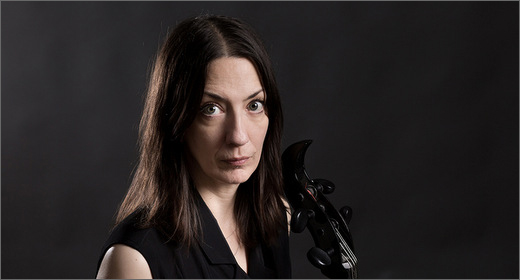

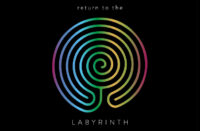

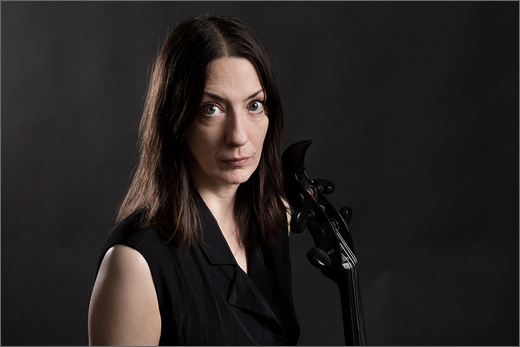

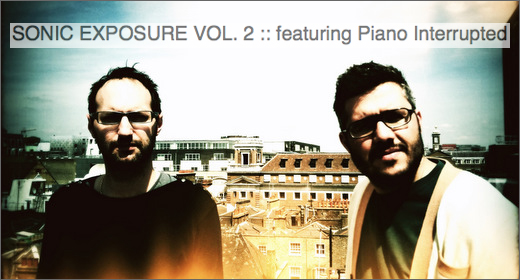
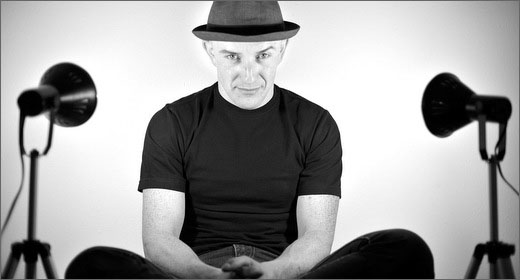
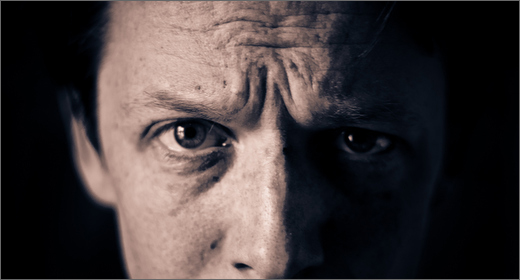
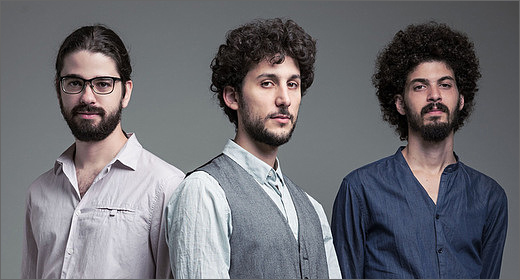
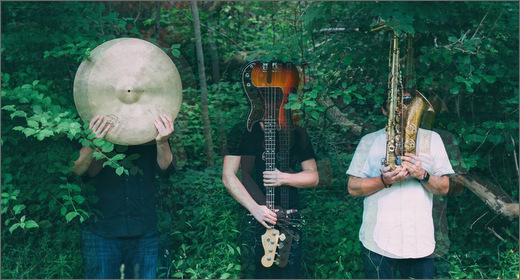


![Ndorfik & madebyitself :: Solos EP (People Can Listen) — [concise]](https://igloomag.com/wp/wp-content/uploads/2025/04/ndorfik-madebyitself-solos_feat-75x75.jpg)








